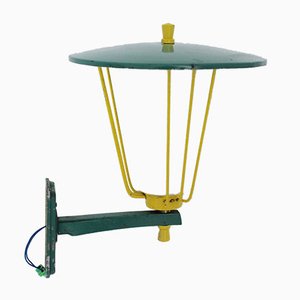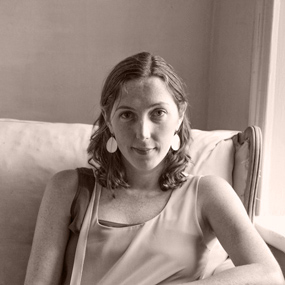At home with Chmara.Rosinke
Mobile Hospitality
Designers Ania Rosinke and Maciej Chmara have carved out a unique space amidst Vienna’s intriguing design scene, both through their studio, Chmara.Rosinke, and as cofounders of the experimental, multidisciplinary gallery Spazio Pulpo. From time to time, though, they come to Berlin, where they have second, sun-filled home, just a short walk from the water. This Charlottenburg pied-à-terre—which includes a smaller workspace and plenty of room for their two-year-old twin boys to run around—is furnished with pieces from their own body of work, mixed and matched with modernist classics and functionalist contemporary designs. The vibe, much like the couple themselves, is friendly, warm, and open. On a day that promised summer just around the corner, the couple kindly welcomed us in, graciously taking the time to talk about their backgrounds and standout projects, as well as what’s up next for them.
The Polish-born designers first met and began collaborating as students at the Academy of Fine Arts in Gdansk. They went on to establish their studio in Vienna in 2012, specializing in projects ranging from objects and interiors to identities and installations. The following year, Vienna’s prestigious MAK museum invited them to its residency project, and in 2014 they curated Austria’s exhibition at the Cape Town’s World Design Capital festivities. Their work is marked by a dedication to sustainability expressed through simple, poetic forms that frequently reduce objects back to their most essential archetypes. While their look may be pared back, their approach is sweeping. Chmara tells us, “We believe very much in the modernist idea that you can do everything. Architects can paint and painters can do architecture.”
Rosinke concurs. “Education in Poland is very classical in its academic sense. We studied many different things—drawing, painting, sculpture, etc., as well as composition, history of art, and more—and we have fun doing many kinds of projects. We like very much that we can do several different things for our clients. When someone asks whether you also do something for the floor, or perhaps branding, it’s good to be able to say we can help you with that.”
This Bauhausian paradigm extends to their aesthetic as well. Take, for example, the pair’s stackable CF02 Chair (2015), inspired by the great legacy of tubular steel chairs from pioneering modernists of the early 20th century; fabricated from a single tube, bent and welded in one spot, as well as two simple, ash wood disks that make up its back and seat, it’s at once nostalgic and decidedly, playfully now. Same goes for their durable update to the iconic 1950s Roland Rainer stacking chair, originally created for the Vienna Stadthalle.
The pair is perhaps best known, however, for their timely Mobile Hospitality series. Composed of wooden, transportable structures—including kitchens, tables, folding stools, and beyond—Mobile Hospitality embraces a DIY aesthetic while exploring current socio-cultural elements, utility, and the notion of public versus private in urban settings. As the designers explain it, “The people of Poland focus on, and are very proud of, their philosophy of hospitality. Everyone raised in Poland and educated by their Polish families inherits these strict traditions of hospitality. What happens, though, when you travel to a place where you … know no one? In 2011, we were invited by ArtDesign Feldkirch to create a happening in an urban space. We wished to show our philosophy of hospitality in a positive way and to provoke [others] into participating in urban life.” To that end, “with our mobile kitchen, table, and folding stools, we drove from place to place to set everything up and spontaneously cook for—and be joined by—strangers passing by. At our big table, design meets delight and generates extraordinary opportunities to get to know each other.”
They took their interventions to a number of European cities, and the project earned the designers a slew of awards, including the DMY Berlin Award, Neue Wiener Werkstätten Award, and Outstanding Artist Award Auszeichnung (all 2012). Mobile Hospitality also became part of the MAK Museum’s permanent collection and led to a special commissioned version for fashion retailer COS. Today, a modified version of one of these mobile kitchens sits inside the designers’ Berlin flat.
During our visit, Chmara and Rosinke happily shared a few of their latest pieces as well, including a set of lovely wall decorations and a modular rug, both inspired by “geometric shapes we’ve been playing around with for some time.” These shapes have previously been utilized in their jewelry and tabletop collections; the latest iterations debuted in Milan in April this year and feature, respectively, jewel and primary tones. Describing their fascination with these particular forms, Chmara says, “We made hundreds of drawings, looking for archaic geometries—shapes that look like you don’t know what time they come from.”
Asked to share what’s around the corner for them, Chmara says, “We are working currently on a project that includes (in the widest sense) a theater in Berlin, but I cannot tell much more yet. Besides this, we are starting on pop-up shops, like we did for COS, and exhibition booths… These will still play a big role in our work, hopefully also [with a bent towards] cuisine. Now that we just presented our booth for LZF at ICFF in New York, and we are developing glasses, finishing a furniture line, and exploring more carpet and textile projects. For now, we are focusing again on the smaller scale.
Stay tuned for more of Chmara.Rosinke in our upcoming feature on the Viennese design landscape!
-
Text by
-
Anna Carnick
Anna is Pamono’s Managing Editor. Her writing has appeared in several arts and culture publications, and she's edited over 20 books. Anna loves celebrating great artists, and seriously enjoys a good picnic.
-
-
Photos by
-
Marco Lehmbeck
Born and raised between forests and lakes near Berlin, Marco studied creative writing in Hildesheim and photography in Berlin. He’s also part of the organizational team behind Immergut indie music festival. He loves backpacking, Club-Mate, and avocados, and he always wears a hat.
-
-
French Translation by
-
Audrey Kadjar
Born in the US to a French family, Audrey grew up in multiple countries. Before landing at Pamono, she studied art history in London and worked in the cultural industry. When she's not working at Pamono, she can be found pursuing art and photography projects.
-
-
Italian Translation by
-
Natalia di Giammarco
Born and raised in Rome, Natalia studied languages, earning her Bachelor’s degree in Rome and her Master’s in Berlin. Despite missing the beauty of her hometown, the eccentricity of Berlin has always enchanted her. Her passions include cinema, travel, food, and theatre—as well as simply lounging for hours in the sun with a good read.
-
-
German Translation by
-
Annika Hüttmann
Born in the northern city of Kiel, Annika's mixed German-Swedish roots mean that she grew up exposed to a smorgasbord of Scandinavian design. The Pamono translator’s latest passion, however, is for German vases produced between the 1950s-70s, of which she now has a collection of over 70!
-
More to Love
Medium YUNO Glass by Chmara.Rosinke, 2017
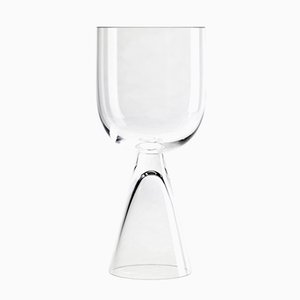
White CF02 Chair by Chmara.Rosinke

CF02 Table by Chmara.Rosinke
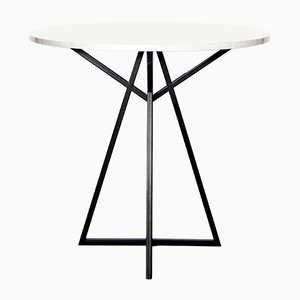
P7 Stacking Chair by Roland Rainer for Emil & Alfred Pollak
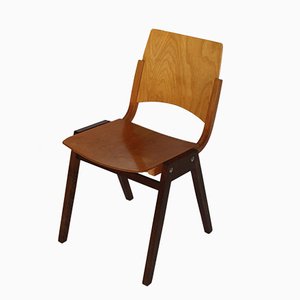
Viennese Austro Armchair by Franz Schuster, 1959
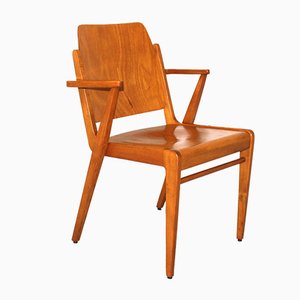
Viennese Dog Wall Hook by Walter Bosse for Hertha Baller, 1955
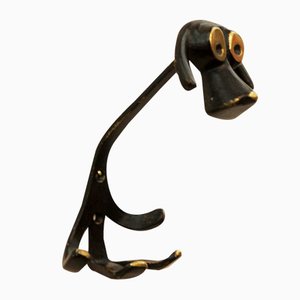
Viennese Wall Light from Kalmar, 1960s
